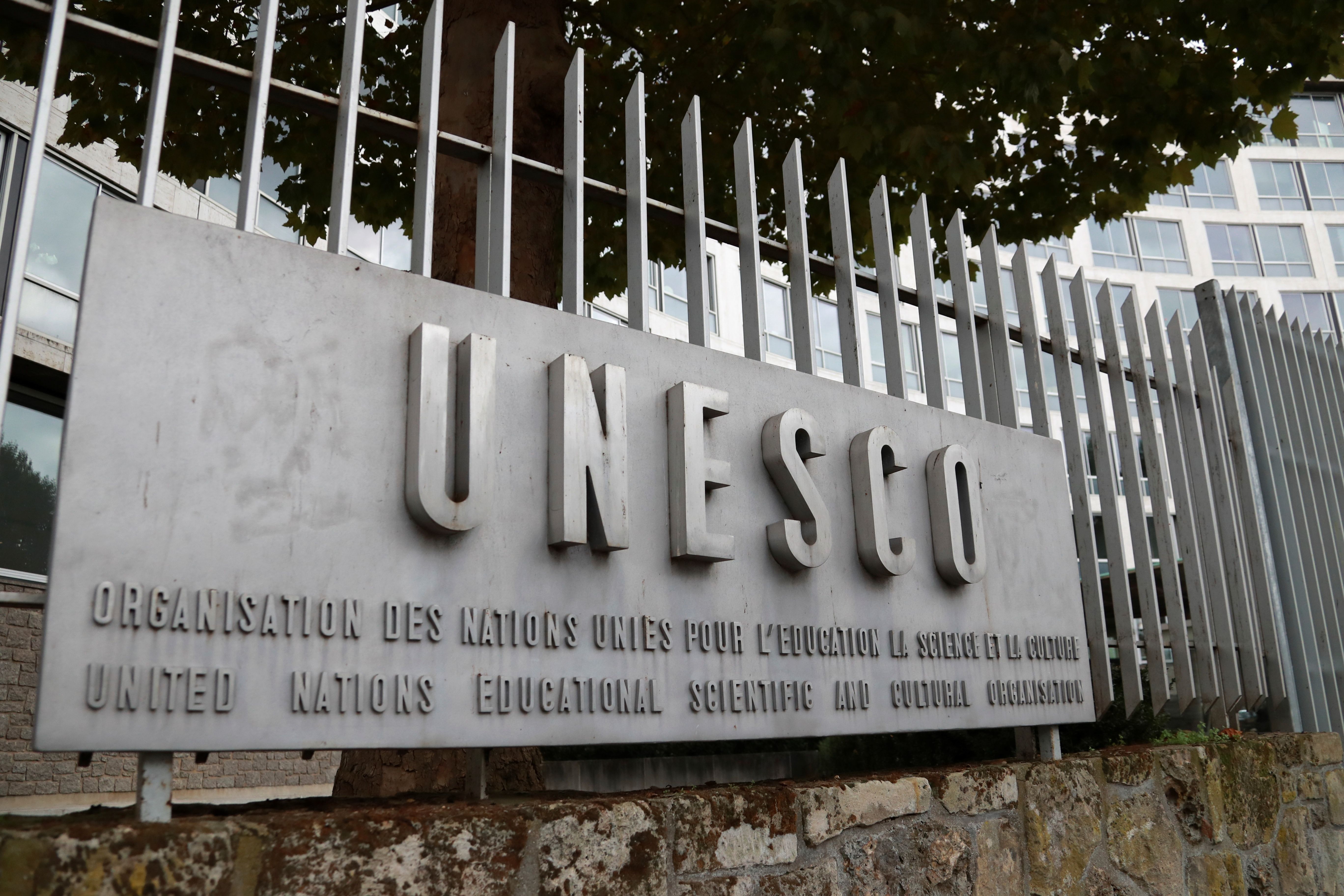The significance and benefits of being on Unesco's World Heritage list
The designation can be a blessing and a curse


A free daily email with the biggest news stories of the day – and the best features from TheWeek.com
You are now subscribed
Your newsletter sign-up was successful
The United Nations Educational, Scientific and Cultural Organization (Unesco) released its provisional agenda for the 2023 World Heritage Committee session taking place in September. The organization designates locations and structures around the world as World Heritage sites. It can also designate World Heritage sites as "in danger," signifying that they're threatened by any number of factors, including tourism, development and climate threats.
What are the designations?
Locations deemed World Heritage sites are of "outstanding universal value to humanity" and should be "protected for future generations to appreciate and enjoy," according to Unesco. The organization also lists World Heritage in danger, "designed to inform the international community of conditions" that "threaten the very characteristics for which a property was inscribed on the World Heritage list and to encourage corrective action."
The World Heritage list is a result of the Unesco Convention concerning the Protection of the World Cultural and Natural Heritage adopted in 1972. The treaty sets the guidelines for the consideration of a World Heritage site, and the countries that signed it agree to "conserve not only the World Heritage sites situated on its territory but also to protect its national heritage." These countries have access to a World Heritage fund that provides money annually to "assist states parties in identifying, preserving and promoting World Heritage sites."
The Week
Escape your echo chamber. Get the facts behind the news, plus analysis from multiple perspectives.

Sign up for The Week's Free Newsletters
From our morning news briefing to a weekly Good News Newsletter, get the best of The Week delivered directly to your inbox.
From our morning news briefing to a weekly Good News Newsletter, get the best of The Week delivered directly to your inbox.
Part of the treaty also includes stipulations for adding sites to the danger list. Unesco takes into account the ascertained and potential danger of sites and decides whether to add them to the list. If added, the World Heritage Committee can "allocate immediate assistance from the World Heritage Fund to the endangered property," and "the mere prospect of inscribing a site on this list often proves to be effective and can incite rapid conservation action."
How does designation impact a destination?
The effects of Unesco's designations are a debated topic. A site being added to the list can be a "kiss of death" and "all too often cures the disease by killing the patient," Italian journalist Marco D'Eramo wrote in 2014, coining the term Unescocide. Essentially, in designating a World Heritage site worthy of protection, the destination becomes a place of unsustainable levels of tourism. This was not accounted for in the original treaty, as Unesco "didn't have the scope of international tourism then," Mike Robinson, a professor of cultural heritage at Nottingham Trent University, told The New York Times.
For example, Italy has been struggling with overtourism, especially tourists vandalizing sites like the Roman Colosseum, which has been a Unesco World Heritage site since 1980. "Countries with Unesco World Heritage sites spend public funds on protective measures and archaeological ventures," stated Insider. "But vandalism forces those same host countries to spend money on security measures with that funding." It's also difficult for people who "work in cultural heritage and in tourism to find that right balance between protecting objects but not destroying the experience," Leila Amineddoleh, a lawyer specializing in cultural heritage, told Insider.
Venice, Italy, has been proposed to be added to the World Heritage in danger list, as overtourism and climate change have caused the city to remain "under serious threat," per the Times. The draft resolution from Unesco concludes that Italy has not made a "significant level of progress in addressing the persistent and complex issues related in particular to mass tourism, development projects and climate change."
A free daily email with the biggest news stories of the day – and the best features from TheWeek.com
In general, when places are listed, "when they clearly haven't got the right systems and policies and processes in place, there's always a problem," Susan Macdonald, the head of buildings and sites at the Getty Conservation Institute, told the Times.
Can it be helpful?
Being designated as a World Heritage site or being identified as a site in danger can raise awareness of threats that can harm the region. Highway construction was halted near Egypt's Pyramids of Giza, and a dam was stopped from being built above Victoria Falls on the border of Zambia and Zimbabwe, as these were sites seen as having cultural significance globally, per National Geographic. More recently, Australia's Great Barrier Reef was at risk of being placed on the endangered list, but the report opted not to add it to the list, citing "'significant progress being made on climate change, water quality and sustainable fishing — all putting the reef on a stronger and more sustainable path," Australian Prime Minister Anthony Albanese said during a media briefing, Reuters reported.
There's also an incentive for developing nations to get destinations added to the World Heritage list to boost tourism. "The power of the Unesco brand can skyrocket a lesser-known destination to a different level," wrote CNN. Despite the threat of overtourism, a Unesco World Heritage designation can "bring much-needed money, support and global recognition to a deserving destination."
Devika Rao has worked as a staff writer at The Week since 2022, covering science, the environment, climate and business. She previously worked as a policy associate for a nonprofit organization advocating for environmental action from a business perspective.
-
 How the FCC’s ‘equal time’ rule works
How the FCC’s ‘equal time’ rule worksIn the Spotlight The law is at the heart of the Colbert-CBS conflict
-
 What is the endgame in the DHS shutdown?
What is the endgame in the DHS shutdown?Today’s Big Question Democrats want to rein in ICE’s immigration crackdown
-
 ‘Poor time management isn’t just an inconvenience’
‘Poor time management isn’t just an inconvenience’Instant Opinion Opinion, comment and editorials of the day
-
 The 8 best superhero movies of all time
The 8 best superhero movies of all timethe week recommends A genre that now dominates studio filmmaking once struggled to get anyone to take it seriously
-
 Josh D’Amaro: the theme park guru taking over Disney
Josh D’Amaro: the theme park guru taking over DisneyIn the Spotlight D’Amaro has worked for the Mouse House for 27 years
-
 The best fan fiction that went mainstream
The best fan fiction that went mainstreamThe Week Recommends Fan fiction websites are a treasure trove of future darlings of publishing
-
 Golden Globes affirm ‘One Battle,’ boost ‘Hamnet’
Golden Globes affirm ‘One Battle,’ boost ‘Hamnet’Speed Read Comedian Nikki Glaser hosted the ceremony
-
 ‘One Battle After Another’ wins Critics Choice honors
‘One Battle After Another’ wins Critics Choice honorsSpeed Read Paul Thomas Anderson’s latest film, which stars Leonardo DiCaprio, won best picture at the 31st Critics Choice Awards
-
 The best alcohol-free alternatives for Dry January
The best alcohol-free alternatives for Dry JanuaryThe Week Recommends Whether emerging from a boozy Christmas, or seeking a change in 2026, here are some of the best non-alcoholic beers, wines and spirits to enjoy
-
 13 Gen Z workplace terms and phrases
13 Gen Z workplace terms and phrasesin depth From ‘quiet firing’ to ‘resenteeism,’ there are clues about why employers and employees in America are having such a sad time
-
 Let these comedians help you laugh your way through winter
Let these comedians help you laugh your way through winterThe Week Recommends Get some laughs from Nate Bargatze, Josh Johnson and more
